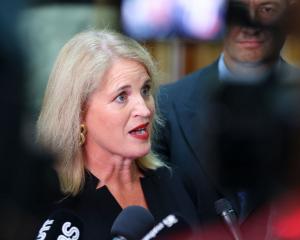
Responding to the ANZ Job Ads series, which showed a 1.6% fall in June, Mrs Nicholls said the Tiwai Point aluminium smelter, Blue River Dairy and the new dairy company, near Gore, were all hiring.
"Southland had a significant increase in job growth through 2017 before it moved to stable. The last two months have seen a nice increase as significant manufacturers started recruiting."
More than 70 people had been hired in Southland in the past month, she said.
Also, the recently announced $40millon hotel-retail complex in Invercargill would provide a timely boost to the region.
The encouraging news from June was likely to continue into the future, Mrs Nicholls said.
ANZ senior economist Liz Kendall said the recent deterioration in business expectations of activity and hiring intentions had flowed through into job advertisements.
Annual growth fell to 2.9%, from 3.9%, on a three-month rolling average.
Higher wage costs, uncertainty about labour relations policy and wariness about the future might be working in combination to dissuade businesses from expanding their workforce.
The latest data pointed to the unemployment rate cruising along at its present level.
The flatlining of job advertisements and the unemployment rate had been expected.
Downside risks had increased, meaning the labour market could go backwards, Ms Kendall said.
"After a strong run this cycle, we expect the economy will grow at reasonable rates. More engines of growth will be needed to drive the unemployment rate lower."
The economy was close to full employment which, in combination with policy changes, supported an increase in wage inflation.
The outlook remained uncertain, and without intensification in resource pressures, underlying wage inflation might remain subdued, Ms Kendall said.
"Today's data shows business caution is affecting decision-making, with flow-on effects for the labour market. With business caution persisting, it is fair to say downside risks have increased."
Mrs Nicholls agreed with Ms Kendall on businesses being affected by labour market changes and uncertainty.
The Otago job market grew strongly last year and earlier this year, before stabilising.
While the shoulder tourist season from April to July could be the reason, Mrs Nicholls believed businesses were becoming frustrated by the Government's labour relations policies which appeared to favour unions.
Central Otago construction was still busy and if someone turned up with skills, they could get a job tomorrow, she said.
Local businesses were more concerned about global events than local ones. Any trade war could detrimentally affect regional exporters.
The Job Ads series showed advertisements in the construction, utilities, manufacturing and transport industry made up a third of job advertisements. The sector's advertisements fell 4.4% in the last three months to be down 1.7% for the year.
Ms Kendall said the construction industry was dealing with significant challenges, including profitability concerns. Also affected were hiring intentions, consistent with employment intentions in the ANZ Business Outlook, which were the lowest since 2009.
Finance, professional, scientific, real estate and administrative services also dipped 2.5% in the quarter to be down 0.5% for the year.
Agricultural job advertisements recovered 2.2% in the three months ended June to be up 10% for the year.
Growth was also seen in information technology, health and education.












